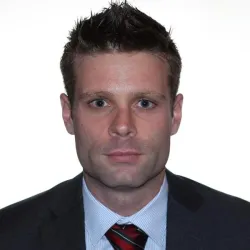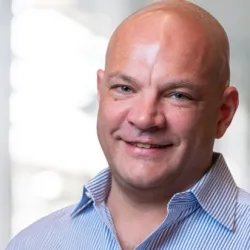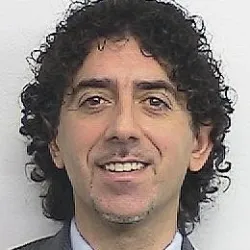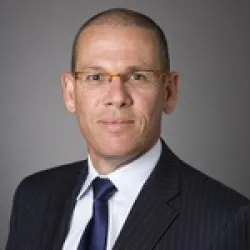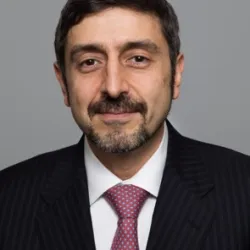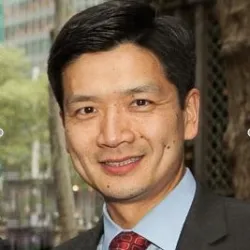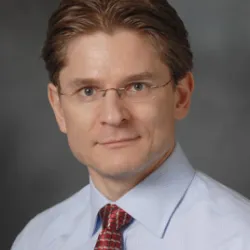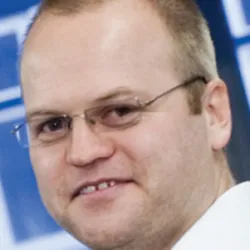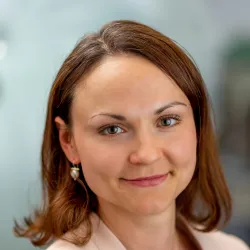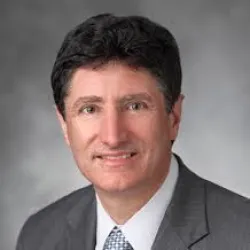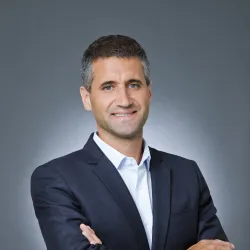Event program 2021
Event program 2021
Global Quant Network - 2021 programme
08:50 – 09:00
Risk.net opening remarks
Risk.net opening remarks
08:50 - 09:00
Mauro Cesa is quantitative finance editor for Risk.net, based in London. He leads the team responsible for the publication of quantitative research across all brands of the division. The section of Risk.net he manages, Cutting Edge, publishes peer-reviewed papers on derivatives, asset and risk management, and commodities.
Mauro holds a degree in economics from the university of Trieste and a masters in quant finance from the University of Brescia.
09:00 – 09:50
Opening keynote address from Risk.net Quant of the Year 2021
Rough volatility
09:00 - 09:50
Mathieu Rosenbaum is a full professor at École Polytechnique, where he holds the chair “Analytics and Models for Regulation”
and is co-head of the quantitative finance (El Karoui) master program. His research mainly focuses on statistical finance problems, regulatory issues and risk management of derivatives.
He published more than 80 articles on these subjects and supervised about 20 PhD students.
He is notably a renowned experts on the quantitative analysis of market microstructure and high frequency trading.
Mathieu Rosenbaum is also at the origin (with Jim Gatheral and Thibault Jaisson) of the development of rough volatility models.
He is one of the editors in chief of the journal “Market Microstructure and Liquidity“ and is associate editor for 10 other journals.
Furthermore, he received the Europlace Award for Best Young Researcher in Finance in 2014, the European Research Council Grant in 2016, the Louis Bachelier prize in 2020 and the Quant of the Year award in 2021.
10:00 – 10:30
Keynote sessions on XVA calculations
10:00 - 11:00
Modeling energy curves for XVA
Andrew McClelland, director of quantitative research, Numerix
Andrew McClelland's work at Numerix focuses on counterparty credit risk issues including valuation adjustments and counterparty exposure production for structured products. He also works on numerical methods for efficient production of risk profiles under real-world measures.
Andrew received his Ph.D. in finance at the Queensland University of Technology in financial econometrics. His research involved markets exhibiting crash feedback, option pricing, and parameter estimation using particle filtering methods. His work has been published in the Journal of Banking and Finance, the Journal of Econometrics, and the Journal of Business and Economic Statistics.
10:40 – 11:10
Keynote: Non-Uniform FFT Methods in Finance
10:40 - 11:10
Leif Anderson, global co-head of quantitative strategies group, Bank of America Merrill Lynch
Leif Andersen
Global co-head of the quantitative strategies group & Data Group
Bank of America Merrill Lynch
Leif B. G. Andersen is the Global Co-Head of The Quantitative Strategies Group at Bank of America Merrill Lynch, and is an adjunct professor at NYU’s Courant Institute of Mathematical Sciences and CMU’s Tepper School of Business. He holds MSc's in Electrical and Mechanical Engineering from the Technical University of Denmark, an MBA from University of California at Berkeley, and a PhD in Finance from Aarhus Business School. He was the co-recipient of Risk Magazine’s 2001 Quant of the Year Award, and has worked for more than 20 years as a quantitative researcher in the derivatives pricing area. He has authored influential research papers and books in all areas of quantitative finance, and is an Associate Editor of Journal of Computational Finance.
11:20 – 11:50
Keynote sessions on Libor transition
11:10 - 12:10
Inspired by Libor reform: expected median of a shifted Brownian motion
Vladimir Piterbarg, global head of quantitative analytics, NatWest Markets
Vladimir Piterbarg
Managing director, head of quantitative analytics and quantitative development
NatWest Markets
Vladimir Piterbarg is the global head of Quantitative Analytics at NatWest Markets since 2018. He held similar positions at Rokos Capital Management LLP, Barclays Capital/Barclays investment bank, and Bank of America. Vladimir Piterbarg has a PhD in Mathematics (Stochastic Calculus) from the University of Southern California. He serves as an associate editor of the Journal of Computational Finance and the Journal of Investment Strategies. Together with Leif Andersen, Vladimir Piterbarg wrote the authoritative, three-volume set of books “Interest Rate Modelling”. He published multiple papers in various areas of quantitative finance, and won Risk Magazine’s Quant of the Year award twice.
12:00 – 12:30
Looking forward to backward-looking rates: modeling and calibrating the volatility decay factors
12:00 - 12:30
Fabio is global head of Quantitative Analytics at Bloomberg LP, New York. His team is responsible for the research on and implementation of cross-asset analytics for derivatives pricing, XVA valuations and credit and market risk. Fabio is also adjunct professor at NYU, and a former CME risk committee member. He has jointly authored the book 'Interest rate models: theory and practice' and published extensively in books and international journals, including 16 cutting-edge articles in Risk Magazine. Fabio holds a BSc in Applied Mathematics from the University of Padua, Italy, and a PhD in Mathematical Finance from the Erasmus University of Rotterdam, The Netherlands
12:30 – 12:40
Closing remarks
12:10 - 12:30
12:40 – 12:45
End of the day.
12:30 - 12:35
08:00 – 08:50
Opening roundtable
ESG investing: what’s in it for quants?
08:00 - 08:50
- Applying a quantitative approach to ESG integration
- How to measure the E, the S and the G?
- The current state of the availability and quality of the ESG data
- Can quants transform ESG?
- ESG in the fixed income space
Join an interactive roundtable discussion and debate what quants bring to the table in the booming field of ESG investing!
The roundtable discussion has limited availability. If you're interested in attending, please pre-register your place here.
Over the past 15 years, Dr. Ben Dor oversaw large scale research projects in rates, credit, equities, and hedge funds used by the largest institutional investors globally, including central banks, Sovereign wealth funds, asset managers, insurance companies, pensions and hedge funds. His research focused on asset allocation, smart beta, alpha generation, portfolio optimization, risk management, cost of investment constraints and hedging.
He published two books on quantitative investing in credit securities and over a dozen articles in leading industry journals such as the Journal of Portfolio Management, Journal of Fixed Income, Journal of Investment Management, and Journal of Alternative Investments.
He co-authored the influential articles on ‘DTS (Duration Times Spread)', a new approach to measuring the spread risk of corporate bonds and credit default swaps. It changed industry practices and was widely adopted by credit investors globally. One of his articles received the Martello award for the 2007 best practitioner paper, and his research on ‘cloning' hedge funds was the basis for several products and was awarded a U.S. patent.
His recent work on exploring the cross-asset relation between stocks and bonds was the basis for constructing systematic equity strategies such as momentum and ‘value' based on credit signals, and the usage of equity derivatives for hedging high-yield bonds. His systematic strategies were adopted by some of the largest global asset managers and were presented in leading industry conferences.
Prior to his current role, Dr. Ben Dor worked at Lehman Brothers and Morgan Stanley. He holds a PhD in Finance from the Kellogg Business School at Northwestern University, and completed his B.A. and M.A. in Economics from Tel Aviv University, Cum Laude.
08:50 – 09:00
Risk.net opening remarks
Risk.net opening remarks
08:50 - 09:00
Mauro Cesa is quantitative finance editor for Risk.net, based in London. He leads the team responsible for the publication of quantitative research across all brands of the division. The section of Risk.net he manages, Cutting Edge, publishes peer-reviewed papers on derivatives, asset and risk management, and commodities.
Mauro holds a degree in economics from the university of Trieste and a masters in quant finance from the University of Brescia.
09:00 – 09:30
Machine Learning for non-stationary data: applications to financial time series
Opening keynote address
09:00 - 09:30
<p><strong>Kharen Musaelian, Founder and Chief Investment Officer, DUALITY ADVISORS</strong></p>
<p>Dr. Kharen Musaelian is the founder of Duality Advisors, a firm specializing in application of machine learning to asset management. Prior to founding Duality Advisors, Dr. Musaelian was Co-Head of Global Rates and Macro at Hutchin Hill Capital, Portfolio Manager at Bluecrest Capital, and the Head of Global Strategic Risk at Merrill Lynch. Dr. Musaelian began his investment career at JP Morgan in 1995, as the Managing Director for the Proprietary Positioning business, focusing on proprietary trading of credit and interest rate products. Dr. Musaelian shared the Risk.net Buy-Side Quant of the Year Award for 2016.</p>
09:40 – 10:10
Portfolio construction with deep reinforcement learning
09:40 - 11:10
Sandrine Ungari is currently Head of Cross-Asset Quantitative Research team and Deputy Head of the Global Quantitative Research team at Société Générale. The Quantitative Research team is active in risk premia strategies, derivatives and structured products, portfolio risk modelling, and provides research to investors worldwide. The group has been recognised as a market leader in quantitative research, and was ranked #1 in the Extel survey in the Quantitative Strategies category. Sandrine joined Société Générale in 2006. Prior to that, she worked as a quantitative analyst at HBOS Treasury and at Reech Sungard in London. She is a graduate of ENSTA (Paris) and hold a Master's in Quantitative Finance from Paris VI University. She is a guest lecturer at University Paris Diderot.
10:20 – 11:00
The big debate
Data-powered investing vs. factor investing
10:20 - 11:00
- To which extent active asset management is justified?
- Traditional factor approach vs. new quantitative strategies
- Can traditional approaches compete with highly sophisticated pattern recognition techniques?
- What are the alternatives to the traditional asset allocation models?
Rob Mannix is the desk editor for investment, covering systematic investment strategies from quant funds to factor investing. He was previously responsible for Risk.net’s insurance coverage.
Based in the London office, Rob is interested in developments in the use of new types of data, the application of machine learning in investment, and research into systematic sources of return in markets.
Rob joined Infopro Digital (then Incisive Media) in 2008, having previously worked at Euromoney Institutional Investor, covering legal and regulatory issues affecting capital markets.
Andrew Y. Chin is the Chief Risk Officer and Head of Quantitative Research for AB. As the Chief Risk Officer, Chin oversees all aspects of risk management to ensure that the risks being taken are well understood and appropriately managed. In the Quantitative Research role, he is responsible for the firm’s data science strategy and for optimizing the quantitative research infrastructure, tools and resources across the firm’s investing platforms. He joined the firm in 1997 and held various quantitative research roles in New York and London. In 2004, Chin became a senior portfolio manager for Style Blend Equities. In 2005, he was named director of Quantitative Research for Value Equities. Prior to joining the firm, Chin was a project manager and business analyst in Global Investment Management at Bankers Trust from 1994 to 1997.
Chin teaches in the School of Operations Research and Information Engineering (Master of Financial Engineering Program) at Cornell University. He also leads teams of students on capstone projects utilizing quantitative and data science skills to address investment issues.
Chin earned a BA and an MBA from Cornell University.
Petter’s research interests include quantitative trading strategies, delegated portfolio management, financial econometrics, risk management, and optimal portfolio strategies.
He is a member of the editorial board of the Journal of Portfolio Management. Previously, Petter worked in the Quantitative Strategies Group at Goldman Sachs Asset Management where his responsibilities included researching and developing new quantitative investment strategies for the group’s hedge fund.
Petter coauthored the books Financial Modeling of the Equity Market: From CAPM to Cointegration (Wiley, 2006), Trends in Quantitative Finance (CFA Research Institute, 2006), and Robust Portfolio Management and Optimization (Wiley, 2007). He holds a doctorate in mathematics from Yale University, an M.Phil. in applied mathematics from the Royal Institute of Technology in Stockholm, and an M.S. in mathematics from ETH Zurich.
Sylvain Champonnois is a former member of BlackRock’s Active Equity team. He focused on the use of alternative datasets, machine learning, and natural language processing for generating alpha. Prior to joining BlackRock in 2011, he was an assistant professor of Finance at the University of California, San Diego and a visiting professor at Imperial College Business School, London. Dr. Champonnois earned an Engineering degree from Ecole Polytechnique and a PhD in Economics from Princeton University.
11:10 – 11:40
Closing keynote address from Risk.net Buy-side Quant of the Year 2021
11:10 - 11:40
Alexander Lipton is global head, research & development at Abu Dhabi Investment Authority, professor of practice at Khalifa University, visiting professor and Dean’s Fellow at the Hebrew University of Jerusalem, Connection Science Fellow at MIT, and advisory board member at ADIA Lab.
Alex is a co-founder of Sila, a company providing digital wallet & ACH payment services, and an advisory board member at several fintech companies worldwide. From 2006–2016, Alex was co-head of the global quantitative group and quantitative solutions executive at Bank of America. Earlier, he was a senior manager at Citadel, Credit Suisse, Deutsche Bank, and Bankers Trust. In addition, Alex held visiting professorships at EPFL, NYU, Oxford University, Imperial College, and the University of Illinois.
Before becoming a quant, Alex was a full professor of mathematics at the University of Illinois and a consultant at the Los Alamos National Laboratory. In 1984 Alex received the Best Young Geophysicist Award from the Soviet Academy of Sciences. Risk Magazine awarded him the Inaugural Quant of the Year Award in 2000 and the Buy-side Quant of the Year Award in 2021.
Alex authored/edited twelve books and over a hundred scientific papers on nuclear fusion, astrophysics, applied mathematics, financial engineering, and distributed ledgers.
Currently, Alex is an associate editor of several journals covering quantitative finance. He frequently gives keynote presentations on quantitative finance and FinTech at conferences and forums worldwide. Alex published several general interest articles in such publications as Scientific American, Barron’s, the Hill, and others. In addition, he is an avid collector and researcher of military optics.
12:40 – 13:40
Differential Machine Learning – Dimension reduction done right
12:40 - 13:40
This talk (re-)introduces differential machine learning and presents a few simple, yet very useful applications in the context of least-square Monte-Carlo, (machine) learning Derivatives pricing and risk, and capital calculations like XVA, CCR, FRTB or SIMM-MVA. In particular, we introduce differential PCA, which harnesses AAD derivatives to safely and effectively reduce the dimensionality of financial problems and tie longstanding loose ends with classic pricing and risk algorithms.
Antoine Savine is a French mathematician and quantitative finance professional with Superfly Analytics at Danske Bank. He has held multiple leading roles in the derivatives industry in the past 20 years, including Global Head of Research at BNP-Paribas, and also teaches Volatility and Computational Finance at Copenhagen University. Antoine holds a PhD in Mathematics from Copenhagen University and he is the author of the book on Automatic Differentiation: 'Modern Computational Finance' (Wiley 2018).
Brian Huge holds a PhD in mathematics from Copenhagen University and works with Superfly Analytics at Danske Bank since 2001.
He produced very noticeable contributions in quantitative finance with Jesper Andreasen, including the iconic ZABR: expansion for the masses, or the LVI volatility interpolation method coupled with the Random Grid algorithm, winner of the Quant of the Year 2012 Risk award. All those algorithms are implemented in Superfly, Danske Bank’s proprietary risk management platform, and used every day for the management of the bank’s trading books.
13:40 – 13:45
End of the day.
12:30 - 12:35
08:00 – 10:00
Master class on implied volatility
08:00 - 10:00
Master class on implied volatility with Hans Buehler, global head of equities analytics, automation and optimization, JP Morgan & Blanka Horvath, honorary lecturer, department of mathematics, Imperial College London
More information to be announced.
The roundtable discussion has limited availability. If you're interested in attending, please pre-register your place here.
Hans Buehler heads Analytics, Automation and Optimization in Equities and runs the Equities and Investor Services Data Analytics and Quantitative Research teams. His mandate is data-driven business transformation across derivatives, cash equity, electronic trading, prime, and securities services using both modern machine learning and classic analytical methods. Specific focus in the machine learning space is on AI-driven electronic execution and derivative risk management, and the use of modern machine learning techniques for engaging with our clients. His team is behind JP Morgan’s LOXM AI effort in electronic trading and the recently published “Deep Hedging” research on AI derivative management.
Hans is a Managing Director, having joined JP Morgan in Hong Kong in 2008. Before that, he worked for seven years at Deutsche Bank, also in Equities. He has a PhD from Technical University in Berlin in Financial Mathematics, and a MSc from Humboldt University in Stochastic Analysis.
Hans is based in London.
Dr Blanka Horvath is an associate professor in mathematical and computational finance at the University of Oxford. Blanka’s current research interests evolve around a new generation of option pricing models (Rough Stochastic Volatility models), and their asymptotic and numerical properties. Prior to her current appointment, she was at ETH Zurich, specialising in functional analytic and numerical properties of SABR-type stochastic models. Blanka holds a PhD in Mathematical Finance from ETH Zurich, a Diploma in Mathematics from the University of Bonn and an MSc in Economics from the University of Hong Kong.
08:30 – 10:30
Master class on recent advances in VIX modeling
Master class on recent advances in VIX modeling with Julien Guyon, senior quant, Bloomberg
08:30 - 10:30
The class will cover:
- Optimal bounds for VIX futures given S&P 500 smiles
- Robust hedging of derivatives on S&P 500 and/or VIX: VIX-constrained martingale optimal transport
- Joint S&P 500/VIX arbitrages
- Exact joint calibration of S&P 500 and VIX smiles: VIX-constrained martingale Schrodinger problems/bridges
- Inversion of convex ordering: a remarkable empirical feature of the VIX market
- Inversion of convex ordering: Local volatility does not maximize the price of VIX futures
- Learning the VIX from the S&P 500 path: A Machine Learning perspective on Path-Dependent Volatility
The roundtable discussion has limited availability. If you're interested in attending, please pre-register your place here.
Julien is a senior quantitative analyst in the Quantitative Research group at Bloomberg L.P., New York. He is also an adjunct professor in the Department of Mathematics at Columbia University and at the Courant Institute of Mathematical Sciences, NYU. Before joining Bloomberg, Julien worked in the Global Markets Quantitative Research team at Societe Generale in Paris for six years (2006-2012), and was an adjunct professor at Universite Paris 7 and Ecole des ponts. He co-authored the book Nonlinear Option Pricing (Chapman & Hall, CRC Financial Mathematics Series, 2014) with Pierre Henry-Labordere. His main research interests include nonlinear option pricing, volatility and correlation modeling, and numerical probabilistic methods. Julien holds a Ph.D. in Probability Theory and Statistics from Ecole des ponts. He graduated from Ecole Polytechnique (Paris), Universite Paris 6, and Ecole des ponts. A big football fan, Julien has also developed a strong interest in sports analytics, and has published several articles on the FIFA World Cup, the UEFA Champions League, and the UEFA Euro in top-tier newspapers such as The New York Times, Le Monde, and El Pais, including a new, fairer draw method for the FIFA World Cup.
16:00 – 18:00
Master class on quantum computing in finance
16:00 - 18:00
Quantum computing in finance with Alexei Kondratyev, managing director, global head of data analytics, CCIB, Standard Chartered Bank & visiting professor, Imperial College London
This class will cover:
- Quantum advantage
- Quantum machine learning
- Finance-related applications of quantum computing
- Expressive power of parameterized quantum circuits
- New quantum algorithms
The roundtable discussion has limited availability. If you're interested in attending, please pre-register your place here.
08:50 – 09:00
Risk.net opening remarks
Risk.net opening remarks
08:50 - 09:00
Mauro Cesa is quantitative finance editor for Risk.net, based in London. He leads the team responsible for the publication of quantitative research across all brands of the division. The section of Risk.net he manages, Cutting Edge, publishes peer-reviewed papers on derivatives, asset and risk management, and commodities.
Mauro holds a degree in economics from the university of Trieste and a masters in quant finance from the University of Brescia.
09:00 – 09:30
Stoptions
Opening keynote address
09:00 - 09:30
Professor Peter Carr is the Chair of the Finance and Risk Engineering Department at NYU's Tandon School He has headed various quant groups in the financial industry for the last twenty years. He also presently serves as a trustee for the National Museum of Mathematics and WorldQuant University. Prior to joining the financial industry, Dr. Carr was a finance professor for 8 years at Cornell University, after obtaining his PhD from UCLA in 1989. He has over 85 publications in academic and industry-oriented journals and serves as an associate editor for 8 journals related to mathematical finance. He was selected as Quant of the Year by Risk Magazine in 2003 and Financial Engineer of the Year by IAQF/Sungard in 2010. From 2011 to 2014, Dr. Carr was included in Institutional Investor's Tech 50, an annual listing of the 50 most influential people in financial technology.
09:40 – 10:20
The big debate
Asset management in the age of AI: extracting insights from alt data, utilizing them and automating the process
09:40 - 10:20
- What is the state of unstructured data today? What insight scan be extracted from it?
- How to make the most of your data in you asset allocation decisions?
- What are the latest AI methods used by asset managers
- Man vs. the machine: what’s the appropriate balance?
- Ethics and interpretability
Ben Dunn is the Head of Quantitative Strategies (QS). He is also responsible for research and development of quantitative signals and strategies. Ben joined Eastspring Investments (Singapore) Limited in June 2014.
Prior to joining our Firm, Ben had been a Quantitative Equity Portfolio Manager at Ankura Capital (a BNY Mellon subsidiary) for over 10 years managing both Australian and Japanese portfolios. He previously held various roles spanning quantitative research, equity trading and software engineering at Queensland Investment Corporation (QIC) and Queensland Treasury Corporation (QTC). Ben has more than 24 years of investment industry experience.
Ben holds a Bachelors degree in Information Technology from Queensland University of Technology (QUT) in Australia. He is also a CFA charterholder.
I lead applied AI research and live systematic trading with monthly multi-billion dollar notional sizes at Hessian Matrix. We develop scalable systematic strategies with deep learning, reinforcement learning and bayesian learning for thin-tailed and fat-tailed distributions. We are an AI systematic global hedge fund based in Singapore.
I am also an NVIDIA Deep Learning Institute instructor leading all deep learning industry workshops in NUS, Singapore and conducting workshops across Southeast Asia.
I’m into applied research for systematic trading strategies with deep learning at NUS where I am a research scholar in NExT (NUS)) and a PYI Fellow.
My passion for enabling anyone to leverage on deep learning has led to the creation of Deep Learning Wizard where I have taught and still continue to teach more than 6000 undergraduates, graduates and professionals in over 60 countries around the world.
Previously I was leading artificial intelligence with my colleagues in Ensemble Capital, an AI hedge fund based in Singapore comprising research scientists, engineers, quants, and traders from NVIDIA and JP Morgan. I have built the whole AI tech stack in a production environment with rigorous time-sensitive and fail-safe software testing powering multi-million dollar trades daily. Additionally, I led, as portfolio manager, our deep learning systematic portfolio.
I was previously conducting research in meta-learning for hyperparameter optimization for deep learning algorithms in NExT Search Centre that is jointly setup between National University of Singapore (NUS), Tsinghua University and University of Southampton led by co-directors Prof Tat-Seng Chua (KITHCT Chair Professor at the School of Computing), Prof Sun Maosong (Dean of Department of Computer Science and Technology, Tsinghua University), and Prof Dame Wendy Hall (Director of the Web Science Institute, University of Southampton). I graduated from NUS where I was an NUS Global Merit Scholar, Chua Thian Poh Community Leadership Programme Fellow, Philip Yeo Innovation Associate, and NUS Enterprise I&E Praticum Award recipient. I was awarded the IT Youth Leader of the Year Award in 2019
10:30 – 11:00
The role of ESG in portfolio risk and return
10:30 - 11:00
As Head of Analytics Applied Research for Asia Pacific, Oleg Ruban focuses on portfolio management and risk-related research for asset owners and investment managers in the Asia Pacific region. He also leads Index Solutions Research for Australia, New Zealand and South Asia.
Prior to joining MSCI in 2008, Oleg worked as an emerging market economist and a quantitative strategist at Dresdner Kleinwort. Oleg began his professional career as a graduate trainee in derivative sales at the Royal Bank of Scotland.
Oleg has an undergraduate degree in Economics and Management from the University of Oxford and MSc degrees from the University of Warwick and Manchester Business School. He also has a Ph.D. in Finance from Manchester Business School, where his topic was studied in emerging market debt.
11:10 – 11:40
Varswap SSR and stochastic volatility calibration
Presentation
11:10 - 11:40
Olaf Torné is the APAC regional head of Equity Derivatives Quantitative Analytics at Barclays, based in Hong Kong. He has previously held equity quant positions at Barclays in London, and Merrill Lynch in Hong Kong, as well as working as a researcher in the Chair of Quantitative Finance at Ecole Centrale Paris. He holds a PhD in Mathematics from Université Libre de Bruxelles.
11:10 – 12:20
Modelling Correlation Skew with Simple Arithmetics
Closing keynote address
11:50 - 12:20
George Hong is head of platform and quants at Credit Suisse, based in Hong Kong. He holds an B.A. in Mathematics and a Ph.D. in Mathematical Finance from Cambridge University.
20:00 – 20:50
Opening Roundtable - ESG investing: what’s in it for quants?
13:00 - 13:50
- Applying a quantitative approach to ESG integration
- How to measure the E, the S and the G?
- The current state of the availability and quality of the ESG data
- Can quants transform ESG?
- ESG in the fixed income space
Join an interactive roundtable discussion and debate what quants bring to the table in the booming field of ESG investing!
The roundtable discussion has limited availability. If you're interested in attending, please pre-register your place here.


